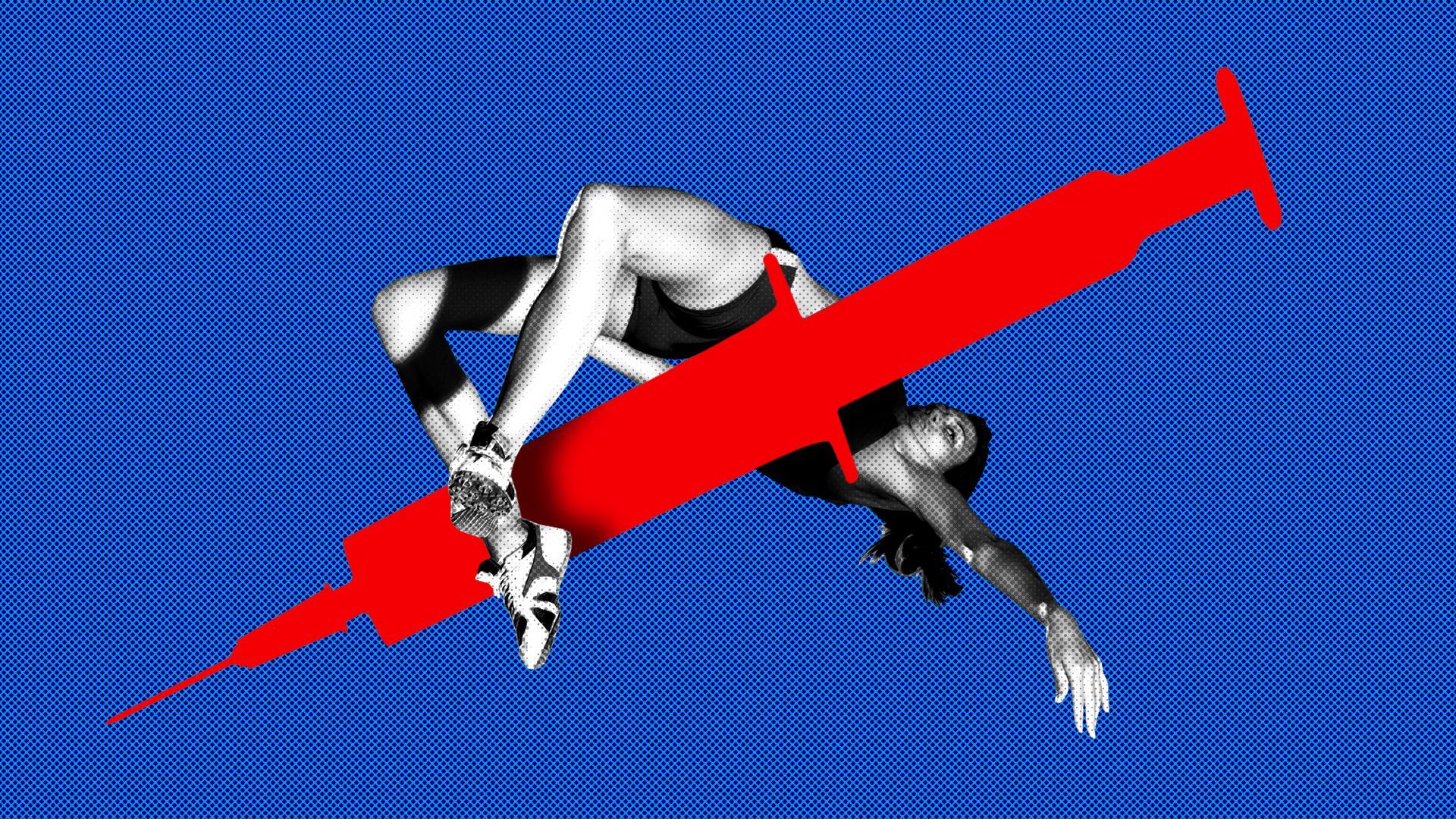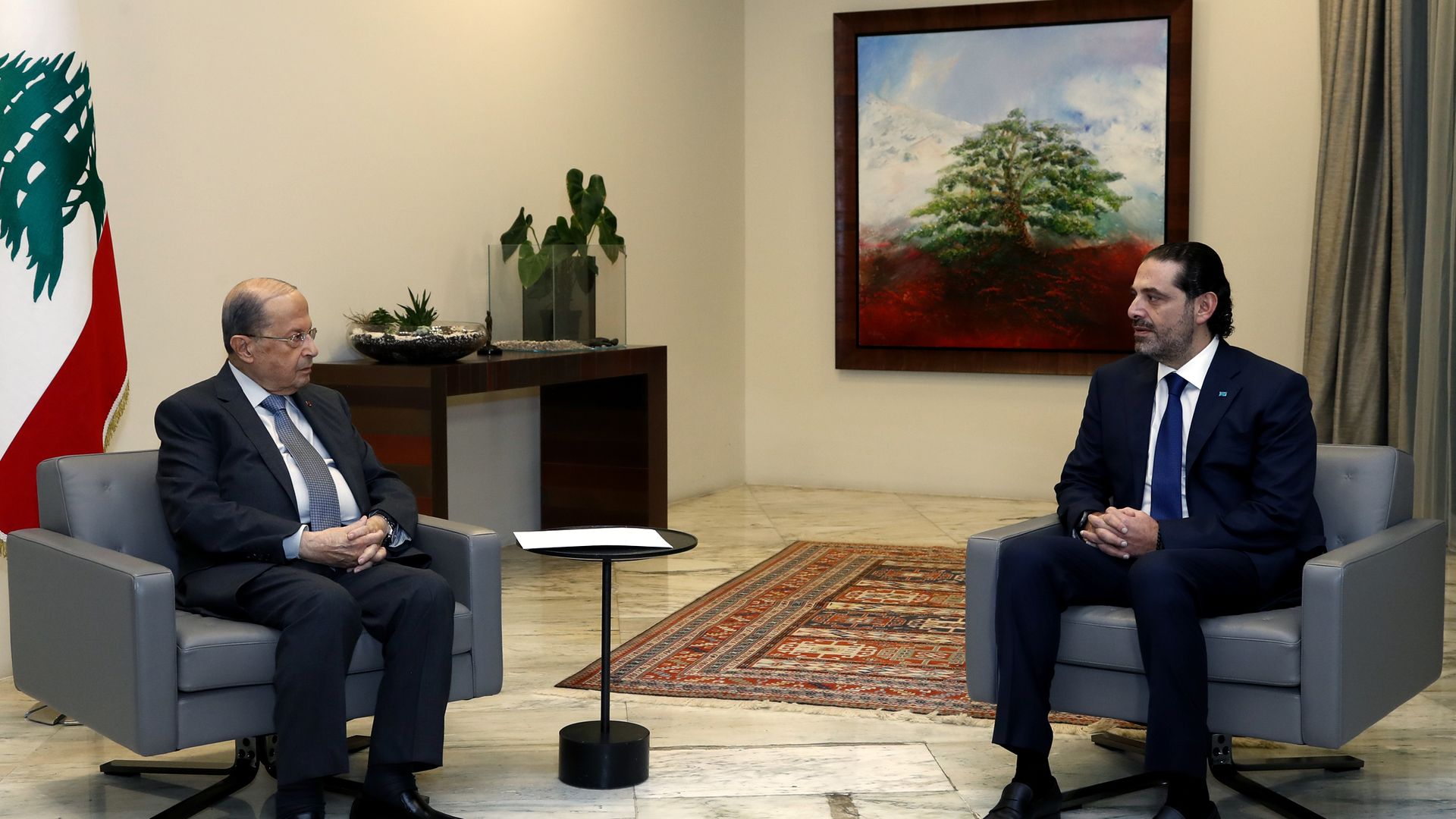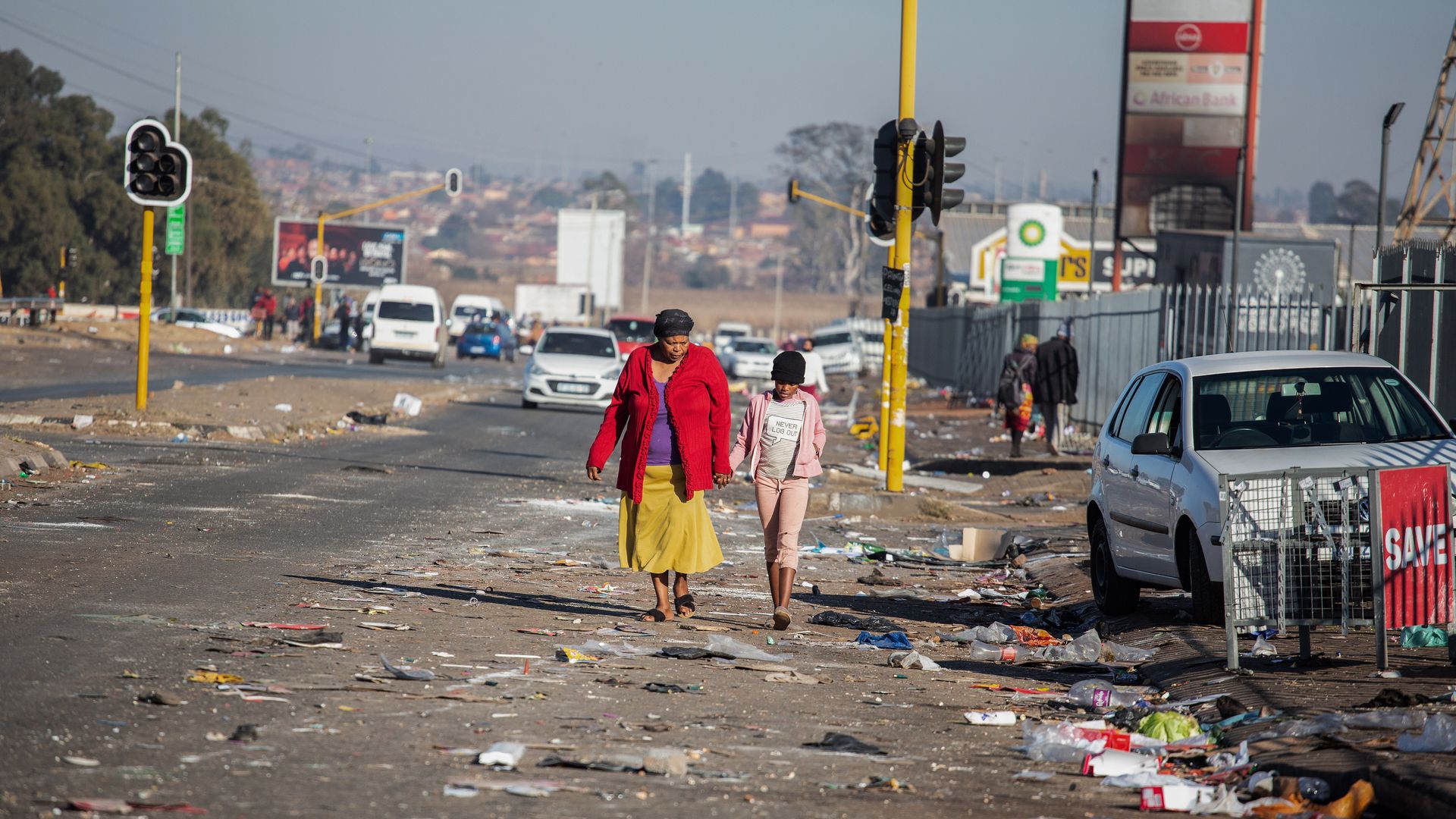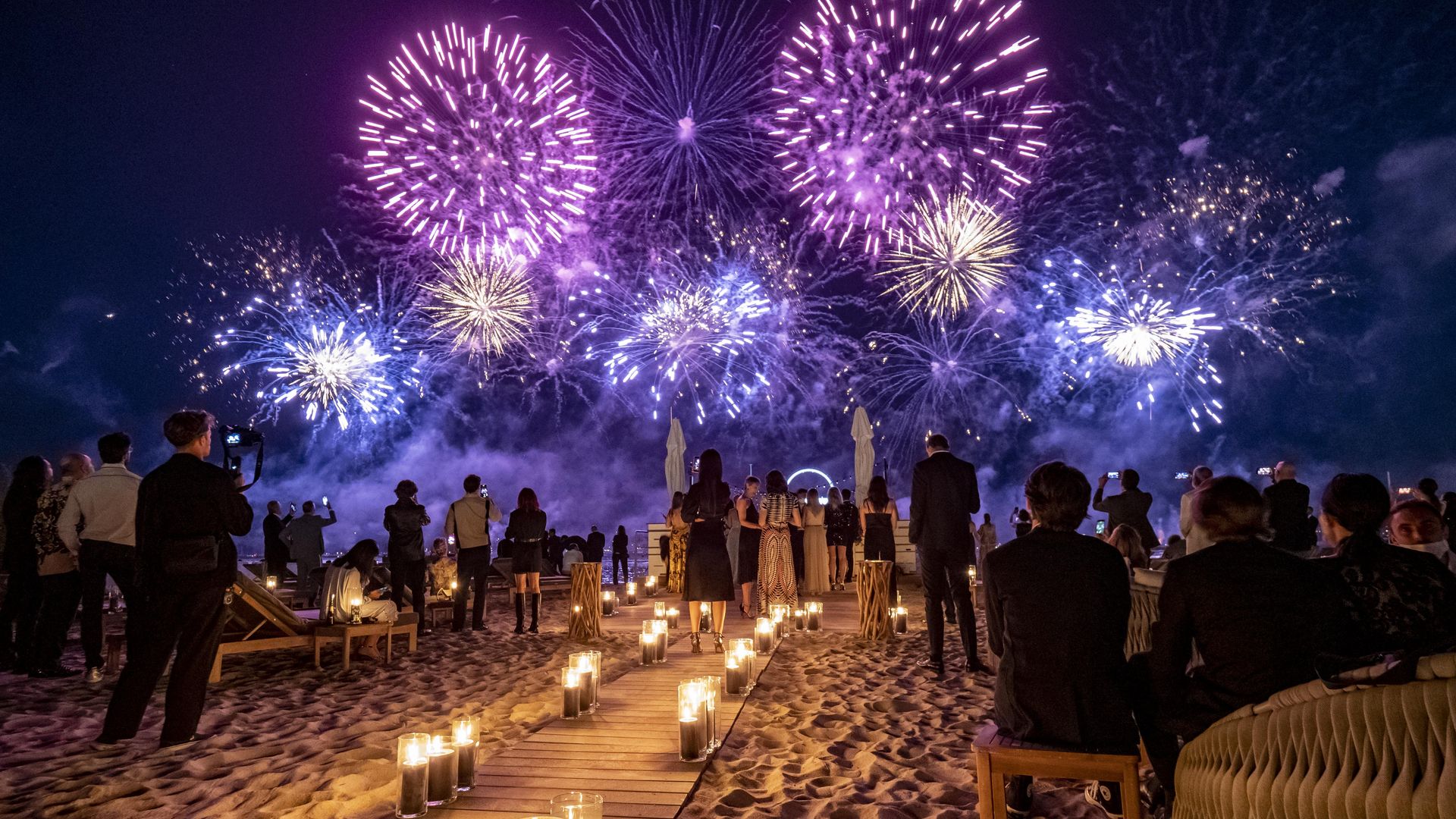| | | | | | | Presented By Babbel | | | | Axios World | | By Dave Lawler ·Jul 15, 2021 | | Welcome back to Axios World. - Hope you've had a good week. I couldn't come up with a good "Where in the World" tonight, so I've thrown in a different sort of bonus.
- Tonight's edition is 1,805 words (7 minutes).
| | | | | | 1 big thing: Why some athletes at Tokyo Olympics won't be vaccinated |  | | | Illustration: Annelise Capossela/Axios | | | | Olympic organizers have made a series of major, last-minute policy changes to reduce the risk of a superspreader event, but they declined to employ one particularly powerful tool: a vaccine mandate. The big picture: Mandatory vaccinations would have been a massive logistical and ethical puzzle. But without one, the threat of infection will loom over the Olympic Village and could ultimately extend well beyond it. State of play: The U.S. Olympic team is requiring coaches and support staff to be vaccinated, but not athletes. - Swimmer Michael Andrew said he'd declined the shot, fearing it could impact his performance. Other athletes have also expressed reservations, though many did elect to be vaccinated.
While supply was not an issue for U.S. athletes, it is for many countries participating in the Games. - Countries like Venezuela and Nigeria, for example, are sending large delegations to Tokyo but currently have less than 1% of their populations fully vaccinated.
- That has generated debates about whether Olympic athletes should be prioritized over at-risk populations, particularly after Australia elected in April to set aside scarce doses for athletes.
- International Olympic Committee president Thomas Bach has spoken out against the idea of athletes "jumping the queue."
Still, steps have been taken to increase access for athletes. - Panam Sports offered to fly athletes from around the Americas to two vaccination hubs in the U.S. before they traveled on to Tokyo.
- Pfizer pledged in May to donate doses for Olympics athletes. But that would require shipping them around the world, in many cases to countries that aren't administering Pfizer (the athletes won't arrive in Japan early enough to get both doses there). Pfizer declined to comment as to how many doses actually reached athletes.
- The Chinese Olympic Committee made a similar promise in March for athletes competing in Tokyo this year or the Beijing Winter Games in 2022. Again, it's unclear how many shots were actually given.
Between the lines: Some athletes will almost certainly arrive in Tokyo without having had the opportunity to get vaccinated. What they're saying: An IOC spokesperson told Axios that around 85% of the individuals traveling to Tokyo in official delegations will be vaccinated, but did not specify the vaccination rate among athletes. - Nearly all IOC staff traveling to Tokyo will be vaccinated, along with 70–80% of media members, per the spokesperson.
- The decision to ban spectators will also reduce the risk of outbreaks spreading into the community. But there will still be thousands of volunteers and local workers, not all of whom will be vaccinated.
What to watch: Infectious disease experts tell Axios' Tina Reed that the Olympics' protocols for testing and ventilation fall well short of those employed by leagues like the NBA and NFL. - Athletes will also have a disincentive to report symptoms, says Annie Sparrow, a professor at the Icahn School of Medicine at Mount Sinai Hospital in New York.
- "No one is going to want to say, 'Oh, I might have COVID' if it means they might be excluded from competition," she notes.
Go deeper. |     | | | | | | 2. No deal on Nord Stream as Biden meets Merkel |  | | | Biden and Merkel in the Oval Office. Photo: Doug Mills/The New York Times via Getty | | | | President Biden's meetings today with German Chancellor Angela Merkel ended without an agreement on the Nord Stream 2 gas pipeline. Why it matters: The Russia-to-Germany pipeline has nearly reached completion despite strong opposition from both parties in Washington, allies on the eastern flank of NATO, and in particular Ukraine, which regards it as a grave security threat. Merkel has stood by the project for a decade. - Biden reiterated his own opposition to the pipeline alongside Merkel today. But in May, he waived sanctions on the company working to complete it.
- Biden argued during today's press conference that "it made more sense to work with the chancellor" to establish how she'd respond if "Russia tried to essentially blackmail Ukraine in some way."
Between the lines: Russian gas currently flows through Ukraine en route to Europe. Nord Stream 2 would bypass Ukraine and give Russia valuable leverage over its former client state. - The U.S. and Germany have been working toward a deal on Nord Stream, but didn't manage to reach one before today's meeting, a senior administration official told reporters.
What they're saying: The official said the White House wants to develop "concrete mechanisms to ensure that energy is not used as a coercive tool against Ukraine ... or any other country." - Merkel was asked this evening how Germany would respond if Russia cut off Ukraine's gas supply and replied that there were "instruments at our disposal," without specifying them.
- The Ukrainians want any deal on Nord Stream to directly address Ukraine's security concerns, even beyond the gas issue. President Volodymyr Zelensky reiterated that in a tweet as Merkel and Biden met, and added: "No deal on Ukraine without Ukraine."
What to watch: The U.S. and Germany are aiming for a deal by August, when Biden will have to reaffirm his decision to waive the sanctions, but one could be announced much sooner. - Sen. Ted Cruz (R-Texas) is currently holding up Senate confirmation of all State Department nominees to pressure Biden to take a tougher line on Nord Stream.
|     | | | | | | 3. Why Cubans took to the streets |  Data: Proyecto Inventario; Map: Will Chase/Axios Biden also suggested during the press conference that he did not plan to return to the Obama-era policy of detente with Cuba amid the unprecedented protests there. What he's saying: Calling Cuba a "failed state," Biden said he would consider implementing policies to ease the struggles of the Cuban people — but only if he knew "they would not be taken advantage of by the government." - Biden said he was not inclined to ease a ban on remittances because the government would confiscate much of the money, and he would only ship vaccines to the island if they were administered by a third party.
Driving the news: Sunday's seemingly spontaneous mobilizations across the island were unseen in 60 years of castrista rule, Axios Latino author Marina E. Franco writes. - Anti-government protests even erupted in the southeast province of Santiago de Cuba, Fidel Castro's stronghold during the revolution and where he is buried.
The big picture: The pandemic deepened Cubans' frustrations with the lack of food and resources that have been simmering for decades. - Tourism, mostly from Canada and Europe, dried up along with the hard currency it provided.
- Chronic power cuts and shortages of food and medicines have been more acute.
- Vaccines are also scarce in part because the government has focused on developing a homegrown shot.
President Miguel Díaz-Canel has pointed to the U.S. embargo as the cause of his country's economic woes and accused U.S. authorities of promoting "non-conventional warfare." - On Wednesday, the Cuban government announced that tariffs on the private import of food, medicine and personal care products would be lifted at least until December.
Go deeper: Biden says sending troops to Haiti "not on the agenda" |     | | | | | | A message from Babbel | | Here's a skill you can show off this summer | | |  | | | | Travel, friends, adventures – it's happening. What you're missing: Get ready with Babbel and start having conversations in a new language in as little as 3 weeks. Sign up today and get 55% off one of 14 languages including Spanish, French, and German. | | | | | | 4. Lebanon's political crisis keeps getting deeper |  | | | Aoun (L) with Hariri. Photo: Lebanese Presidency handout via Getty | | | | Lebanese President Michel Aoun today rejected Prime Minister-designate Saad Hariri's proposal for a new government, prompting Hariri's resignation and deepening the country's political crisis. Why it matters: Lebanon's political stalemate is contributing to the country's economic collapse, and caretaker Prime Minister Hassan Diab has been pleading for international help to avert an imminent "social explosion." But key international players say they'll withhold aid without economic and political reforms that would require a new government. Driving the news: Hours before Aoun rejected Hariri's proposal, Secretary of State Tony Blinken and French Foreign Minister Jean-Yves Le Drian had sent a joint message to the Lebanese president stressing the need to form a new government as soon as possible. - Meeting in Washington on Wednesday, Blinken and Le Drian also discussed possible sanctions against Lebanese politicians involved in corruption or in preventing the formation of a government.
- "We will coordinate the measures of French and American pressure against those responsible for this impasse," Le Drian said.
Flashback: Diab resigned after the Beirut explosion last August but political infighting has prevented the formation of a new government. After Aoun rejected his proposed technocratic Cabinet — which came after eight months of negotiations — Hariri said it would be "impossible" to reach a deal with the president. - "May God help Lebanon," he said.
The latest: The Lebanese pound plunged to a new low against the dollar after the news. It has lost more than 90% of its value over the past year. |     | | | | | | 5. South Africa sends in troops amid arson, looting |  | | | Walking amid the debris, in Johannesburg. Photo: James Oatway/Getty Images | | | | The South African government began deploying 25,000 troops today to assist police in quelling the widespread looting and violence that erupted after the incarceration of former President Jacob Zuma. Why it matters: The deployment marks one of the country's largest since the end of white-minority rule in 1994. Authorities say at least 117 people have been killed in the ongoing violence in Johannesburg and other nearby cities and over 2,200 arrested for theft and vandalism. The big picture: Riots broke out after Zuma began his 15-month prison sentence for contempt of court last week. He had refused to testify in an inquiry into the many corruption charges against him. - Zuma's jailing was viewed as a victory for South Africa's institutions and a major test for the ruling ANC party, in which Zuma still has many allies.
- But it was also the spark for days of violence, including wide-scale looting and arson attacks that appear likely to devastate local economies.
What to watch: South Africa's highest court agreed to hear Zuma's application to have his prison sentence rescinded. The judges have yet to announce their decision. |     | | | | | | 6. Global news roundup | | 1. Dozens of Chinese cities and counties have warned that people over 18 must get vaccinated in order to access public facilities including schools and hospitals, WSJ reports. 2. Venezuela opposition figure Freddy Guevara was detained and U.S.-backed opposition leader Juan Guaidó was threatened at gunpoint this week, as President Nicolás Maduro tried tightening his grip on power. - Those events were particularly surprising as they came shortly after plans were announced for negotiations between the two sides in August, with Mexico as host and Norway as mediator.
3. France will withdraw its 5,000-strong anti-insurgent military force in the Sahel in the first quarter of 2022, President Emmanuel Macron announced on Tuesday. 4. Dutch crime reporter Peter R de Vries, renowned for his reporting on organized crime, died today after being shot in central Amsterdam last week. Two suspects have been arrested. 5. "First, the junta stole Myanmar's elected leaders from the people. Now, doctors say, the generals have taken the oxygen that some citizens need to breathe," Hannah Beech reports for the NYT. Dive in. |     | | | | | | Bonus: Newest Axios World contributor |  | | | | Meet Una, my new (home) office mate. |     | | | | | | 7. Stories we're watching |  | | | Celebrating Bastille Day, in France. Photo: Arnold Jerocki/FilmMagic | | | - 60 dead in floods in Germany, Belgium
- Bolsonaro hospitalized for abdominal pains
- France mandates vaccine for health workers
- Dire warning on Palestinian Authority
- More unmarked graves found in Canada
- China sees moderate economic growth
- U.S. cities rank low on bike-friendliness
Quoted: "If you take to the sea, you will not come to the United States." — Homeland Security Secretary Alejandro Mayorkas warning Cubans and Haitians not to flee to the U.S. amid crises at home |     | | | | | | A message from Babbel | | Here's a skill you can show off this summer | | |  | | | | Travel, friends, adventures – it's happening. What you're missing: Get ready with Babbel and start having conversations in a new language in as little as 3 weeks. Sign up today and get 55% off one of 14 languages including Spanish, French, and German. | | |  | | It'll help you deliver employee communications more effectively. | | | | | | Axios thanks our partners for supporting our newsletters. If you're interested in advertising, learn more here.
Sponsorship has no influence on editorial content. Axios, 3100 Clarendon Blvd, Suite 1300, Arlington VA 22201 | | | You received this email because you signed up for newsletters from Axios.
Change your preferences or unsubscribe here. | | | Was this email forwarded to you?
Sign up now to get Axios in your inbox. | | | | Follow Axios on social media:    | | | | | |











No comments:
Post a Comment